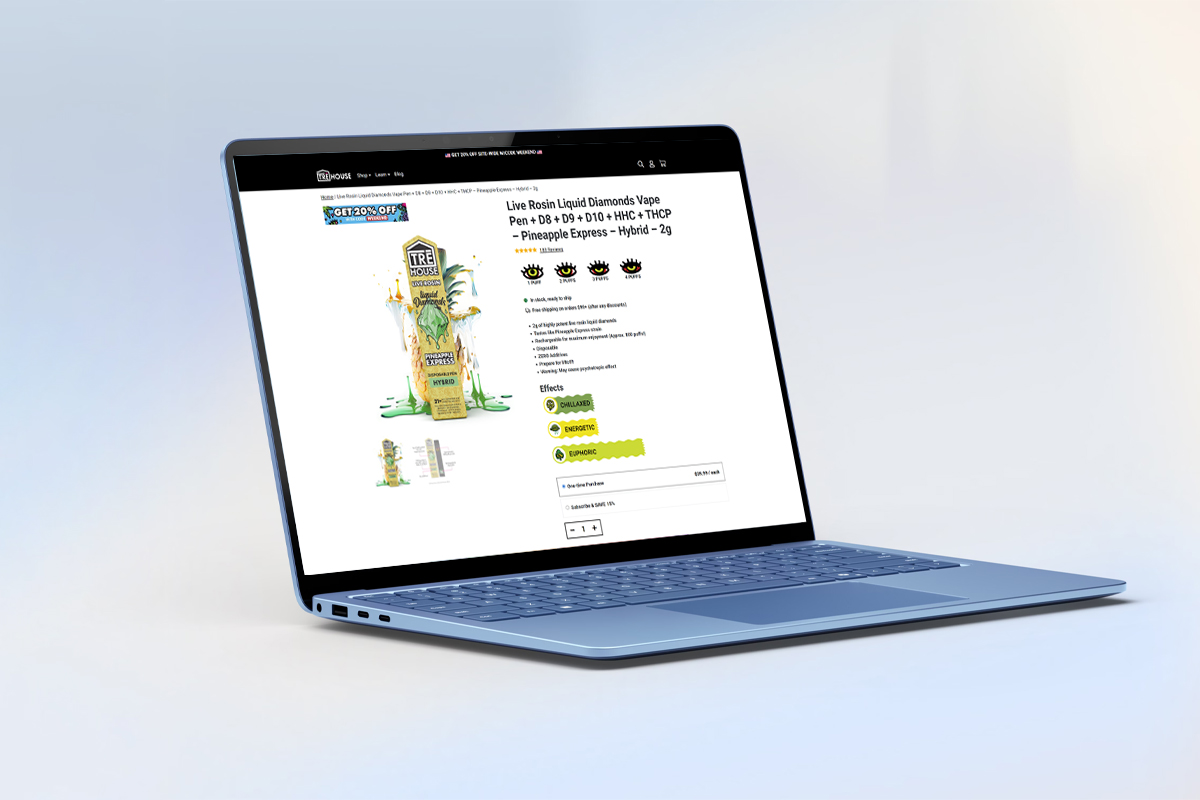Does THC Vapes Make People Nauseous? Understanding the Connection Between THC and Nausea
The popularity of THC vapes has soared in recent years, largely due to the convenience, potency, and ease of use they offer compared to traditional methods of consuming cannabis. THC, or tetrahydrocannabinol, is the psychoactive compound in cannabis that induces the high. For many users, THC vapes provide a fast and discreet way to consume cannabis, especially in states or countries where it’s legalized for recreational or medicinal use. However, one common side effect some users experience is nausea, raising the question: Does THC vapes make people nauseous?
Can THC Vapes Cause Nausea?

THC is well-known for its ability to alleviate nausea, which is why it’s often prescribed for cancer patients undergoing chemotherapy. But ironically, THC, especially in the form of vapes, can also cause nausea for some individuals. Research suggests that THC interacts with the brain’s endocannabinoid system, which plays a critical role in regulating various physiological processes, including appetite and digestion.
For some users, particularly those who consume THC regularly or in large quantities, nausea can develop as a side effect. The reason behind this paradox is still not fully understood, but it’s believed that THC can overstimulate cannabinoid receptors, leading to gastrointestinal upset, including nausea and vomiting.
What is Cannabinoid Hyperemesis Syndrome (CHS)?
A more severe cause of nausea associated with THC vapes is Cannabinoid Hyperemesis Syndrome (CHS), a rare condition experienced by chronic cannabis users. First identified in 2004, CHS causes recurrent nausea, vomiting, and abdominal pain. What makes this condition particularly puzzling is that while THC is effective at suppressing nausea in certain medical conditions, it seems to cause extreme nausea and vomiting in individuals with CHS, particularly those who use high-potency products like THC vapes.
CHS typically manifests in three stages:
- Prodromal stage: Nausea, abdominal pain, but no vomiting. This stage can last for months or even years.
- Hyperemetic stage: Severe vomiting begins, often accompanied by compulsive hot showers, which provide temporary relief.
- Recovery stage: Symptoms subside when cannabis use is stopped but can return if the individual resumes using it.
Although the exact cause of CHS is still debated, one theory is that high doses of THC can slow gastric emptying, leading to stomach distress and nausea.
Why Do THC Vapes Cause Nausea in Some People?
There are several factors at play when it comes to why THC vapes, in particular, cause nausea. First, vaping delivers higher concentrations of THC into the bloodstream faster than smoking or ingesting cannabis. This rapid absorption can overwhelm the body’s endocannabinoid system, leading to side effects like nausea, dizziness, and vomiting.
Additionally, vapes often contain concentrated THC oil or distillates, which are much more potent than flowers or edibles. While this can offer stronger effects for users seeking intense experiences, it can also trigger negative reactions, especially in those with low tolerance or pre-existing conditions.
Comparing THC Vapes to Other Forms of Consumption
Not all methods of consuming cannabis carry the same risk for nausea. For example, smoking cannabis flowers generally leads to a slower onset of effects compared to vaping, which can help users gauge their body’s reaction to THC before consuming too much. Edibles and tinctures, on the other hand, are metabolized differently in the liver and may also cause nausea, but the onset of nausea is usually delayed.
Vaping, by contrast, allows for almost immediate effects, which can be beneficial for those seeking quick relief from conditions like chronic pain or anxiety, but it also makes it easier to overconsume THC, increasing the likelihood of nausea.
How to Recognize and Manage Nausea from THC Vapes
If you’re experiencing nausea after using THC vapes, you’re not alone. Symptoms can range from mild discomfort to severe vomiting and abdominal pain. Here are some common signs that nausea from THC is developing:
- Sudden queasiness shortly after vaping
- Persistent nausea that doesn’t subside
- Stomach cramps or pain
- Vomiting, which may become recurrent with continued use.
To manage nausea caused by THC vapes, try these remedies:
- Hydration: Staying well-hydrated can help alleviate symptoms.
- Hot showers or baths: Many individuals with CHS find temporary relief through hot showers.
- Over-the-counter anti-nausea medications: These can provide short-term relief but may not address the underlying cause.
- Discontinue use: The most effective treatment, particularly for CHS, is stopping the use of THC products altogether.
Prevention Tips: Reducing the Risk of Nausea from THC Vapes
If you want to continue using THC vapes but wish to avoid nausea, here are some preventive measures you can take:
- Start with low doses: Especially if you’re new to vaping, begin with the smallest dose possible and increase slowly.
- Opt for lower THC concentrations: Choose vape products with lower THC levels or a balanced mix of THC and CBD.
- Take tolerance breaks: Regular cannabis users may develop a tolerance, leading them to consume more, which increases the risk of nausea. Taking breaks can help reset your tolerance and reduce side effects.
Medical Interventions for Cannabinoid Hyperemesis Syndrome (CHS)
In severe cases of CHS, medical intervention may be necessary. The primary treatment for CHS is cessation of cannabis use, as symptoms typically resolve within a few days after stopping. However, if nausea and vomiting are severe, hospitalization may be required to provide IV fluids and electrolyte replacement.
Some medical treatments that have been tried include:
- Antiemetic drugs to manage nausea and vomiting
- Acid-reducing medications to help with stomach discomfort
- Capsaicin cream applied to the abdomen, which mimics the effects of hot showers.
Can THC Vapes Be Used Safely?
While the potential for nausea exists, many people use THC vapes without experiencing any adverse effects. The key to safe consumption is moderation and self-awareness. If you notice early signs of nausea, adjusting your dosage or switching to products with lower THC levels might help prevent it. If you’re prone to nausea or have experienced symptoms of CHS before, consider other forms of cannabis consumption or even reducing your usage.
Conclusion: What’s the Bottom Line?
THC vapes have become a popular method of consuming cannabis, offering convenience and potency. However, for some users, they can also cause nausea, especially when consumed in high doses or over prolonged periods. Whether you’re new to vaping or a regular user, it’s important to monitor how your body responds to THC and take steps to minimize the risk of adverse effects like nausea. And if you experience severe symptoms or suspect Cannabinoid Hyperemesis Syndrome, the best course of action is to stop using THC products and seek medical advice.








